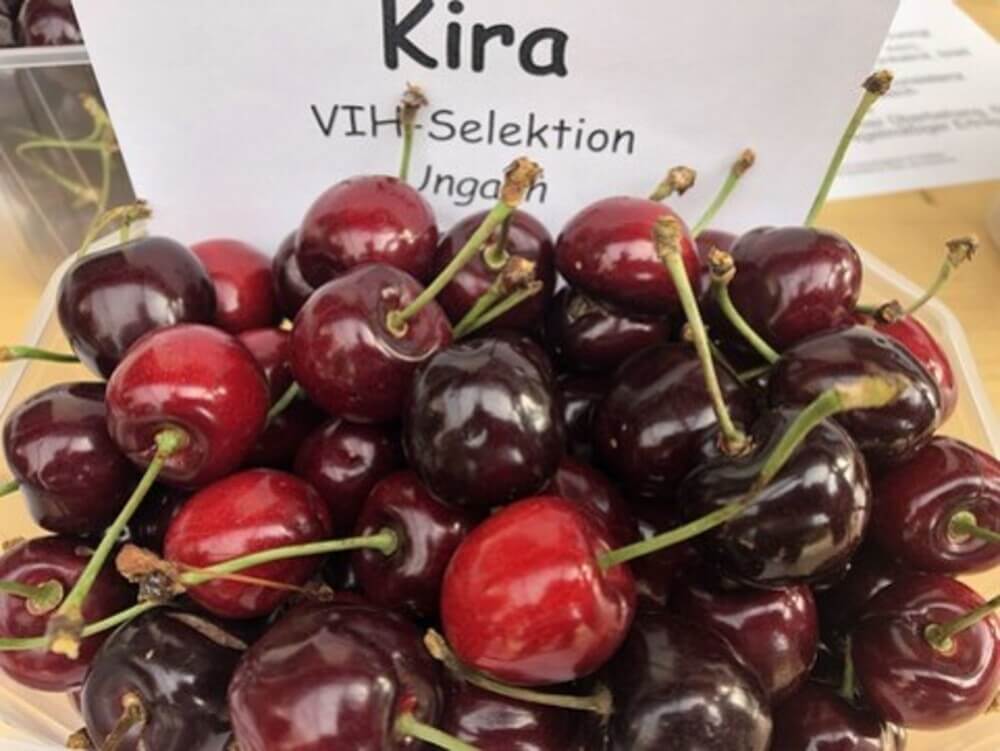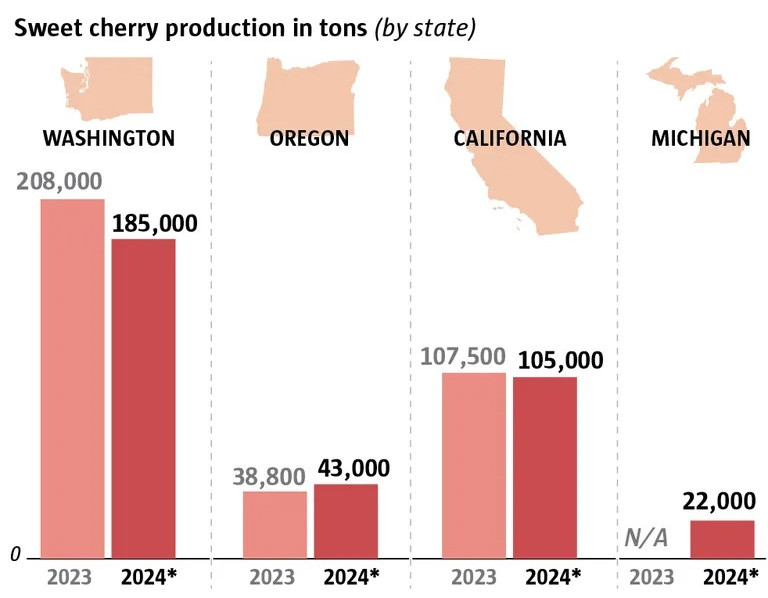In the context of sweet cherry orchards, the presence and management of honey and mason bees (Osmia spp.) play a crucial role in ensuring effective pollination. Mason bees, recognised as highly efficient pollinators, can be encouraged to establish and breed in artificial nesting environments. However, the lack of practical management guidelines, including optimal stocking rates for mason bee nesting material and honey bees, poses a possible threat to the continuity of the pollination service.
A recent study conducted in 17 sweet cherry orchards in central Germany examined the relationship between the stocking rates (hives for honey bees and nesting material for mason bees) and the abundance of both types of bees. The investigation also involved a pollination experiment to assess the interaction of mason bees and honey bees on cherry fruit set.
The results showed an increase in the abundance of both honey bees and mason bees in relation to the number of hives or nesting boxes. While the abundance of honey bees showed a linear growth with increasing density, the abundance of mason bees reached a saturation point at 2-3 nesting boxes per hectare. The pollination experiment revealed a pollen-related limitation, with only 28% of the flowers pollinated by the insects producing fruit, compared to 39% obtained with optimal hand pollination.
Furthermore, it was found that both types of bees favoured sweet cherry fruit set, but this benefit was only manifested when they were present at the same time. In other words, the presence of both mason bees and honey bees in the orchard was essential to maximise fruit set.
The provision of nesting material for mason bees and the use of hives for honey bees were identified as key levers for increasing bee abundance in sweet cherry orchards. This has practical implications for farmers wishing to improve fruit set and potentially sweet cherry yields. Increasing the abundance of both types of bees through wise management can be a significant benefit to pollination services.
In conclusion, this study provides valuable insights into the management of mason bees and honey bees in sweet cherry orchards, offering practical suggestions that could be adopted by farmers to improve fruit production through an optimised pollination service.
For the research data click here
Read the full article: Osterman, J., Benton, F., Hellström, S., Luderer-Pflimpfl, M., Pöpel-Eisenbrandt, A.-K., Wild, B. S., Theodorou, P., Ulbricht, C., & Paxton, R. J, (2023). Flower visitors and fruit set of sweet cherry in Germany, Zenodo, https://doi.org/10.5061/dryad.3xsj3txn0.
Cherry Times - All rights reserved










